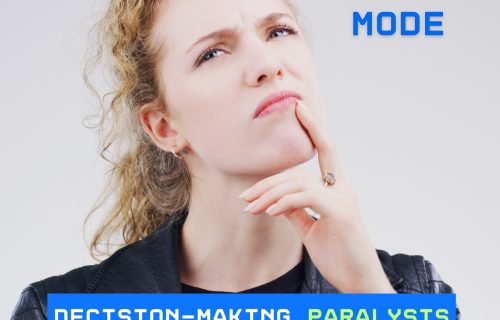
We Don’t Always Need to Know Why
It is my belief that we don’t always need to know why we behave the way we do or why we make choices we make in life, in order to free ourselves from self-sabotaging behavior. Sometimes, maybe even most of the time, simply recognizing that what we are doing does not feel good to us and discovering new ways to process what is going on around us is enough to restore a sense of well-being to our lives.
For example if we touch a red-hot burner on a stove, we don’t need to understand the scientific reasons why it causes us pain. Most of us “get it” that putting our hand on a hot stove does not feel good, so we don’t do it again. On the other hand (no pun intended), if someone deliberately puts her hand on hot burners over and over again and then complains about the pain it causes her, that person could benefit from talking with a good psychotherapist.
Recently, I heard Dr. Robert Holden say that most people don’t need therapy, what they need is clarity. I think that is a perfect description of the underlying basis of good coaching. When we are able to see how we set ourselves up to be unhappy and discontented it is a more efficient way to bring ourselves back into a state of well-being than understanding why we set ourselves up.
Most of us have heard the statements “When you change your thoughts, you change your life.” or “As a man thinketh, so is he.” and many, many others. What do those statements really mean and how can we put them to work for us? Each of us has a built in GPS that lets us know when our thoughts are off-track. That GPS is our emotions/feelings. When we are feeling sad, victimized, angry, resentful, jealous or anything other than feelings of contentment or peace within ourselves, we can be assured that our thoughts are the underlying cause for the discord. It is up to us to examine those thoughts and determine if they are based on reality, a learned belief or just a thought we made up.
Stuff happens in life. If we live long enough, each and every one of us will experience times of loss, pain and unhappiness. In fact, we need the contrast in our lives. Up cannot exist without down, there is no light without dark or positive without negative. The goal is not to try to eliminate the so called negative thoughts or to replace them with positive thoughts, the goal is to become conscious of when our thoughts are not leading us to our highest good. When we are conscious of our self-defeating thoughts, we can move past them more quickly. When we are conscious of our thoughts, we can make a choice to follow those thoughts down a dark and winding trail or we can realize that it is just a thought and it has no power over us if we do not give it power over us.
For example, if we are blind-sided by our spouse’s decision to file for divorce, we could easily have the thought that we are “being tossed aside like yesterday’s trash”. If we allow that thought to take up residence in our mind and if we “buy into” the thought that we are in fact “trash and not good enough for him” it leads us down a path of feeling unworthy. If we are unconscious and do not recognize that this is a self-sabotaging thought that is not in our highest good, it may take a long time to recover our balance. If however, we can become conscious of the thought as soon as we start feeling bad, we can see that the thought “I am yesterday’s trash” is just a thought that we made up. It becomes clear that the thought is not a reality, so the thought becomes powerless and we can move past it into a state of well-being more quickly.
It doesn’t require years of therapy, to move from feeling bad to feeling better, just a willingness to stop believing everything we think is the truth.


